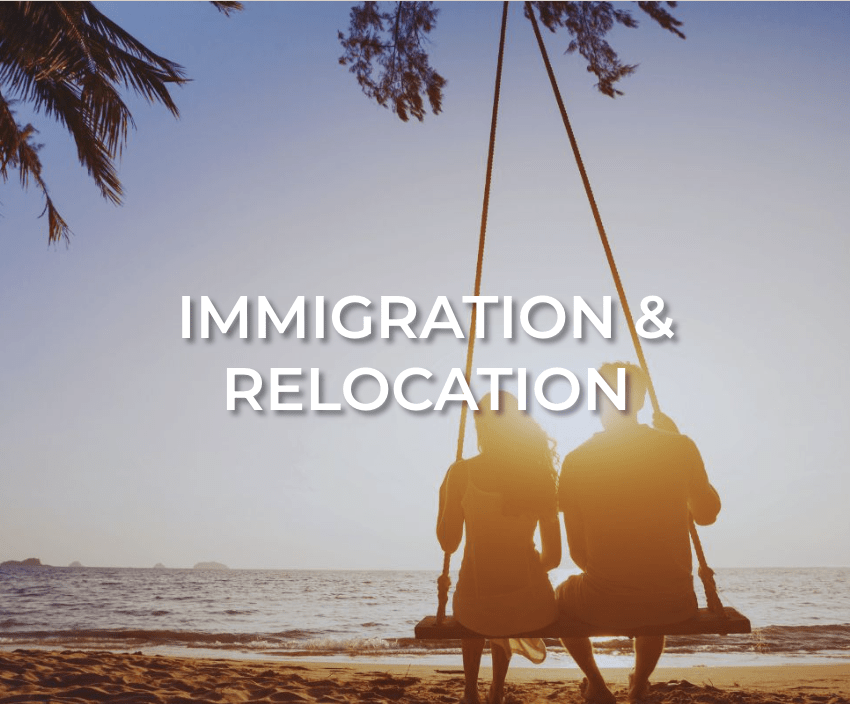

Citizenship Through Marriage: 10 Fun Facts You Need To Know
by Quatro Legal Immigration Team | Feb. 27, 2024 | Article, Immigration

Marrying a Costa Rican can be more than just a romantic adventure; it opens the door to becoming a citizen of this beautiful country. Many people dream of living in Costa Rica, known for its lush landscapes and laid-back lifestyle.
But, getting citizenship through marriage comes with specific steps and requirements that one must follow. This blog post sheds light on ten fun facts that are crucial for anyone considering taking this path to becoming a full-fledged Costa Rican citizen.
Quatro Legal stands ready to guide you through every step of the way. With years of experience in immigration law, our team understands the ins and outs of acquiring Costa Rican citizenship by marriage.
From managing legal paperwork to ensuring all your documents meet Costa Rica’s standards, we’re here to help make your transition as smooth as possible.
Stay tuned to learn everything you need to know about this unique journey.
10 fun facts you need to know
Discover intriguing insights about becoming a Costa Rican citizen through marriage, from the two-year partnership and living requirements to the final step of obtaining your Costa Rican ID and passport.
Learn what it takes to successfully apply for citizenship, including necessary legal documents like your birth certificate and marriage license, and understand how the Supreme Electorate Court plays a crucial role in this process.
1. Marriage to a Costa Rican Citizen
Marrying a Costa Rican citizen opens the door for foreigners to apply for citizenship in this vibrant country. To make this union officially recognized, the couple must register their marriage in Costa Rica’s Civil Registry.
After being married to a Costa Rican citizen and living in Costa Rica as a legal resident for two consecutive years, foreigners can submit their citizenship application. The process requires consistent legal residency, not just the duration of the marriage.
However, it’s crucial to understand that marriage alone does not guarantee instant citizenship—applicants must navigate through specific processes and requirements set by Costa Rica immigration laws.
2. Cohabitation Does Not Count
Living together without being officially married does not meet the requirements for citizenship through marriage in Costa Rica. Even if a couple lives together in a manner that feels like marriage, this arrangement alone does not grant them any legal rights or advantages in the naturalization process.
To be considered partners in the eyes of Costa Rican law, they must pursue recognition through Family Court and prove their relationship is public, notorious, unique, and stable for over three years to achieve an implied marriage status.
This step is crucial for one partner to enjoy benefits tied to health care, inheritance, and spousal support from the other.
3. Two-Year Marriage and Residency Requirement
To apply for citizenship in Costa Rica through marriage, one must be married to a Costa Rican and live in the country as a legal resident for at least two consecutive years. The clock on these two years stops if the applicant leaves Costa Rica, making continuous residency crucial.
This requirement ensures that applicants have a genuine connection to the country and its culture before being granted citizenship. After meeting this condition, individuals can submit their application to the Tribunal Supremo de Elecciones for processing, which takes between 10 to 18 months.
4. Requirement to Reside in Costa Rica
Living in Costa Rica for at least two years is a must for foreign spouses wishing to obtain citizenship after marrying a Costa Rican. This residency ensures that applicants truly integrate into life in Costa Rica, embracing its culture and community.
They must renew their temporary residency annually during this period, proving their commitment and continuous presence in the country. With clear evidence of residing within its borders—which includes updated documents submitted to the Civil Registry of Costa Rica—applicants move closer to achieving permanent residency and ultimately, citizenship.
5. Calculation of the Residency Period
Calculating the residency period is a critical step for expatriates aiming to become citizens of Costa Rica through marriage. Expatriates must live in Costa Rica for at least two years after marrying a Costa Rican citizen to meet one of the citizenship requirements.
During this time, they hold temporary residency, renewable yearly for up to three years, before becoming eligible for permanent residency. This process ensures that applicants have genuinely established their life in Costa Rica as part of their commitment to gaining citizenship.
6. Criminal Background Check Requirement
Applying for Costa Rican citizenship by marriage demands a criminal background check not older than three months. This paperwork proves the applicant’s eligibility and enhances the application’s credibility.
A clean record on this check is crucial as any marks could hinder their path to becoming a citizen of Costa Rica. Applicants must ensure they include this document, along with a birth certificate and proof of residency in Costa Rica, to meet the specific requirements set forth by immigration laws.
7. Impact of a Criminal Record
Applying for Costa Rican citizenship by marriage demands a criminal background check not older than three months. This paperwork proves the applicant’s eligibility and enhances the application’s credibility.
A clean criminal record is crucial, as any marks could hinder their path to becoming a citizen of Costa Rica. While specific rejection rates due to criminal records aren’t publicly detailed, having a clean record significantly increases the likelihood of approval. Applicants must ensure they include this document, along with a birth certificate and proof of residency in Costa Rica, to meet the specific requirements set forth by immigration laws.
8. Processing Time for Citizenship
The citizenship process takes between ten months and a year and a half to be resolved, revealing the commitment Costa Rica places on thorough evaluation of its applicants. During this time, applicants must show they have lived in Costa Rica for two years post-marriage to a citizen, alongside holding legal residency.
This period allows the Supreme Electorate Court ample time to review applications, ensuring all criteria are met from criminal records to proof of residence within the nation’s borders.
9. Submission to the Supreme Electorate Court
Applicants must submit their citizenship requests to the Tribunal Supremo de Elecciones, also known as the Supreme Electorate Court. This step is crucial for expatriates seeking to live in Costa Rica permanently after marrying a Costa Rican citizen.
The court reviews applications thoroughly, ensuring that all legal requirements are met, including residency stipulations and clear criminal records from both Costa Rica and the applicant’s country of origin.
Successful submission leads applicants closer to obtaining their desired dual citizenship, allowing them to enjoy civil, political, economic, social, and cultural rights equally with citizens.
10. Receiving Your Costa Rican ID and Passport
Upon approval, individuals will secure a naturalization letter and their Costa Rican ID, known as the cédula de identidad. This key piece of identification is obtainable at no cost but requires setting up an appointment at the consulate.
To get a new passport, they must visit one of the consulates in the USA that carry out this process, each with its own set of steps and fees. For those living outside Costa Rica needing a Certificate of Delinquency for their application, they can do so through their consulate by providing detailed personal information in a specific request letter.
Additional Insights on Costa Rican Citizenship through Marriage

Learn how securing citizenship through marriage in Costa Rica enriches your life and understanding of local norms, directly from experts with years of field know-how. Our legal team shares their personal experiences to guide you deeper into the privileges and responsibilities that come with becoming a part of this vibrant culture.
Explore these insights to fully embrace your new journey.
Obtaining a Naturalization Letter and Costa Rican Identification
Spouses of Costa Rican citizens must be married for three years before they can apply for a naturalization letter and Costa Rican identification. This process requires them to submit proof of their marriage and a certificate of good conduct to show they have a clean criminal record.
Once approved, individuals gain the right to vote in elections and even run for public office, marking their full participation in Costa Rica’s democratic society. Unlike many countries, Costa Rica allows dual citizenship, letting people retain their original nationality while embracing their new rights as Costa Ricans.
Advantages of Holding Costa Rican Citizenship
Holding Costa Rican citizenship offers the chance for individuals to vote and access various social services, enhancing their participation in Costa Rican society. This status also allows them to apply for residency directly, streamlining the immigration process significantly.
Furthermore, it grants the right to work legally in Costa Rica without needing a separate work permit, simplifying the path to building a life and career within this vibrant country.
Conclusion
Marrying a Costa Rican brings you closer to becoming part of this vibrant country. Each step, from registering your marriage to submitting paperwork, paves the way toward your new identity.
The journey includes checks and balances but ends with a rewarding outcome: a naturalization letter and a Costa Rican ID. With these in hand, opening bank accounts and traveling as a Costa Rican citizen become reality.
Your commitment opens doors to exciting possibilities in Costa Rica, making every requirement worth it.
Disclaimer: The information provided in this blog post is for general informational purposes only and is not intended to constitute legal advice. While we strive to ensure the accuracy and timeliness of the content, laws and regulations are subject to change. For the most accurate and up-to-date information, please contact our office directly. Some images may be AI generated.
Get To Know Quatro Legal

We’re bringing empathy and excellence back to legal counseling. Quatro Legal is built on a bedrock of kindness, a passion for service, and a commitment to guiding you through your legal challenges with ease.
OUR SERVICES
EXPLORE BY
category
REAL
ESTATE
CORPORATE
COSTA RICA
LIFESTYLE
LABOR & EMPLOYMENT
CLIENT
TESTIMONIALS
FREE TRADE
REGIME
All Rights Reserved 2023 | Privacy










